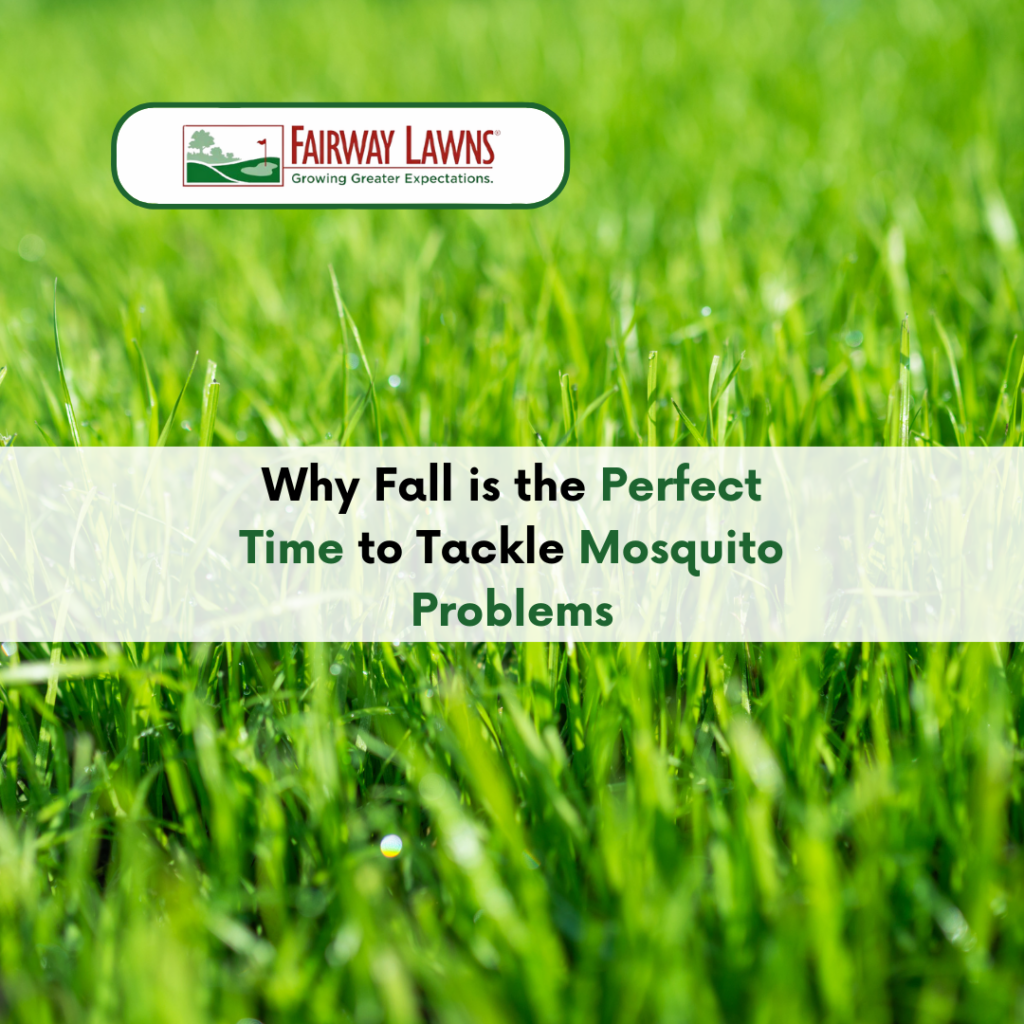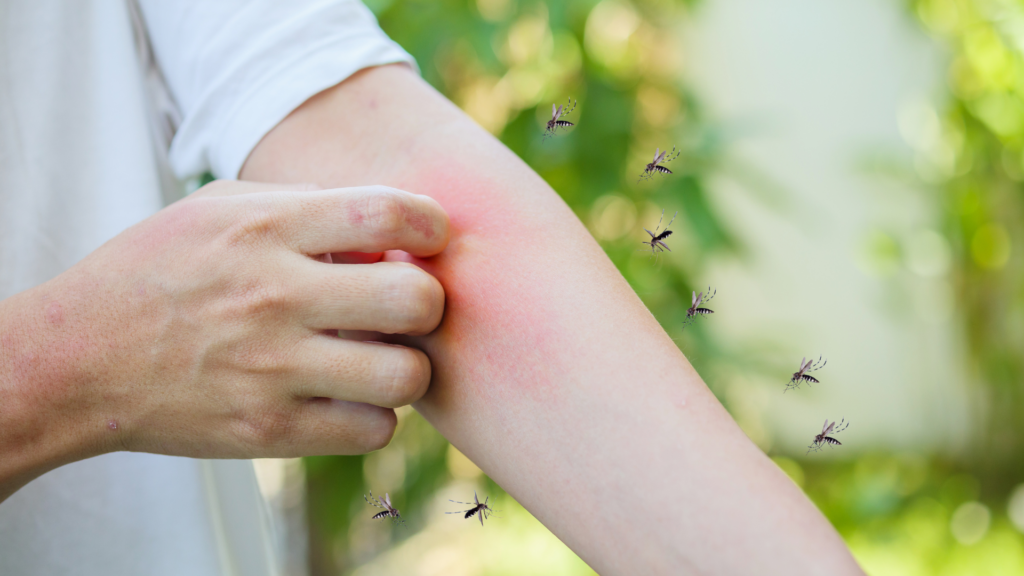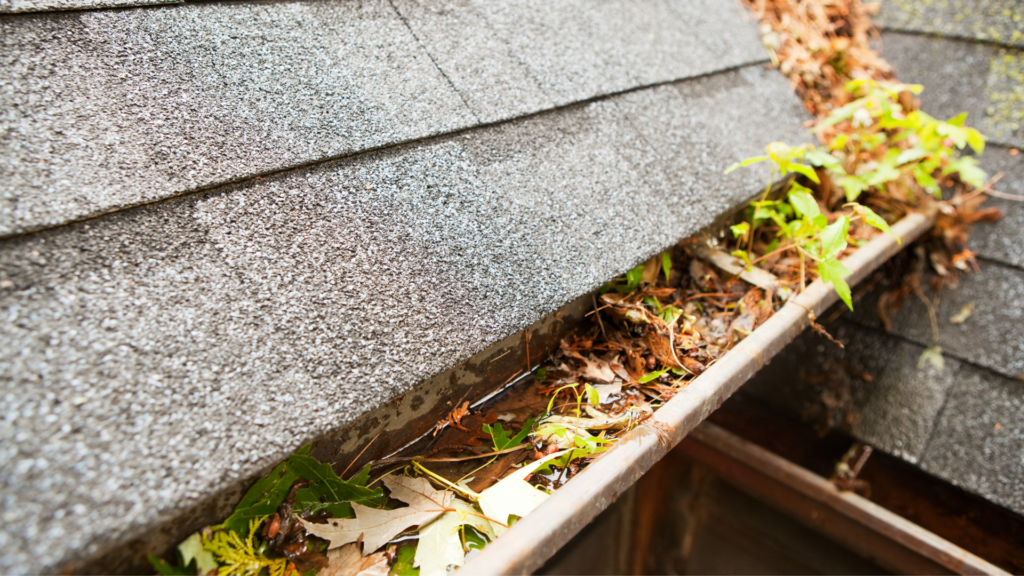
Why Fall is the Perfect Time to Tackle Mosquito Problems
Fall is a great time to address mosquito problems in your yard. As the weather cools down, you might think that these pesky insects are gone. However, fall is actually a crucial period for effective mosquito control. Tackling the problem now can make your yard more enjoyable and safer in the upcoming seasons.
Mosquitoes are more than just a nuisance. They can carry harmful diseases that affect both humans and pets. By focusing on mosquito control in the fall, you can reduce the number of mosquitoes that survive into the next year. This helps decrease the overall mosquito population in your area. Plus, the cooler temperatures make it easier to work outside without dealing with extreme heat.
Understanding when and how to treat your yard for mosquitoes will get you the best results. This guide will explain why fall is ideal for mosquito control and offer tips to help you keep your yard mosquito-free. Let's dive into the reasons fall is the perfect season to take action against mosquitoes, ensuring a healthier and more comfortable environment for your family.
Why Fall Is Ideal for Mosquito Control
Fall is the perfect season to tackle mosquito problems for several reasons. First, mosquitoes are slower and less active in cooler weather. This makes them easier to target and treat. As temperatures drop, mosquitoes become less aggressive, giving you the upper hand in controlling them.
Another reason fall is ideal is that mosquitoes are preparing to overwinter. Some species lay eggs that will hatch in the spring, while others will find places to hibernate. Treating your yard now can eliminate many mosquitoes and their eggs, reducing the population that will emerge in warmer months.
Fall treatments also fit well into your yard's natural rhythm. As trees and shrubs start to shed leaves, identifying mosquito breeding grounds becomes easier. You can spot standing water and other problem areas more readily. Addressing these spots in the fall prevents mosquitoes from returning in large numbers next year. By focusing on mosquito control now, you set the stage for a more comfortable and mosquito-free spring and summer.

Understanding Mosquito Life Cycle
Knowing the mosquito life cycle helps you target them more efficiently. Mosquitoes go through four stages: egg, larva, pupa, and adult. Each stage offers different opportunities for control.
1. Egg: Female mosquitoes lay eggs in or near water. Eggs can survive dried conditions and hatch when they come into contact with water.
2. Larva: Once hatched, the larvae, also called wrigglers, live in water. They feed on organic matter and breathe air through siphons. This stage lasts around ten days.
3. Pupa: After the larva stage, mosquitoes enter the pupa stage, also called tumblers. They do not feed during this time, and it lasts about two to three days.
4. Adult: Adults emerge from the pupae and begin feeding. Females seek blood meals to produce eggs, starting the cycle again.
Interrupting this cycle can greatly reduce mosquito populations. Treating standing water with larvicides can kill eggs and larvae, while adulticides can target adult mosquitoes. Understanding these stages allows you to apply the right treatments at the right times.
Common Mosquito Habitats
Mosquitoes need specific habitats to thrive, and recognizing these areas helps in controlling them. Here are common mosquito habitats you should monitor:
1. Standing Water: Mosquitoes lay eggs on or near standing water, like ponds, bird baths, and puddles. Emptying or treating these water sources can break the breeding cycle.
2. Tall Grass and Shrubs: Adult mosquitoes often rest in tall grass, shrubs, and other vegetation. Keeping your garden well-maintained reduces hiding spots.

3. Clogged Gutters: Water can accumulate in clogged gutters, providing a perfect breeding ground. Regularly cleaning your gutters helps prevent this.
4. Containers and Tires: Any containers left outside can collect water, including plant pots, old tires, and toys. Ensure you empty, cover, or remove these items to avoid mosquito breeding.
By identifying and addressing these habitats, you can significantly reduce the mosquito population in your yard. Simple steps like removing standing water and maintaining your lawn can make a big difference.
Mosquito-Borne Diseases to Be Aware Of
Mosquitoes are more than just a nuisance; they can transmit serious diseases. Here are some common mosquito-borne diseases to be aware of:
1. West Nile Virus: This virus can cause flu-like symptoms and, in severe cases, lead to neurological issues like meningitis. Most people infected with West Nile Virus do not show symptoms, but it's still best to avoid mosquito bites.
2. Zika Virus: Zika is particularly dangerous for pregnant women, as it can cause birth defects. Symptoms are usually mild, including fever, rash, and joint pain.
3. Dengue Fever: This tropical disease causes high fever, severe headaches, and joint pain. Dengue can sometimes lead to severe complications known as dengue hemorrhagic fever.
4. Malaria: Although less common in the United States, malaria is still a concern in many parts of the world. Symptoms include fever, chills, and flu-like illness.
5. Chikungunya: This virus causes severe joint pain, fever, rash, and muscle pain. While rarely fatal, the joint pain can be debilitating and last for months.
Being aware of these diseases highlights the importance of effective mosquito control. By taking steps now, you can reduce the risk of these diseases affecting you and your family.
How Cooler Temperatures Affect Mosquito Activity
Cooler temperatures in fall affect mosquito activity in several ways. Mosquitoes are cold-blooded insects, meaning their body temperature is the same as their environment. When temperatures drop, mosquitoes become less active and sluggish. This makes them easier to target with treatments.
Mosquitoes need warmer temperatures to reproduce. Most mosquito species stop laying eggs when night temperatures fall below 50°F (10°C). The eggs they lay in fall may not hatch until the following spring, especially if temperatures continue to drop. This pause in their breeding cycle provides a perfect opportunity to interrupt their life cycle and reduce future populations.
Cooler weather also means less standing water from summer rains. Reduced water sources make it easier to locate and treat mosquito breeding sites. By treating these areas in fall, you can prevent eggs from hatching and eliminate larvae before they develop into adults. Taking advantage of cooler fall temperatures helps ensure effective mosquito control and sets the stage for a more comfortable spring and summer.
Key Benefits of Fall Mosquito Treatments
Fall mosquito treatments offer several key benefits that make them an essential part of your yard care routine. Here are some of the main advantages:
1. Reduces Future Mosquito Populations: By treating mosquitoes and their breeding sites in the fall, you reduce the number of mosquitoes that will survive into the next year. This means fewer mosquitoes annoy you and your family in the spring and summer.
2. Minimizes Risk of Mosquito-Borne Diseases: Effective mosquito control decreases the risk of diseases like West Nile Virus and Zika. Fall treatments help break the cycle of disease transmission by targeting mosquitoes before they have a chance to breed.
3. Improves Outdoor Comfort: Mosquito bites can make it unpleasant to spend time outside. Fall treatments help create a more enjoyable outdoor space, allowing you and your family to make the most of your yard without the constant bother of biting insects.
4. Cost-Effective: Treating mosquitoes in the fall can be more cost-effective than waiting until spring. With fewer mosquitoes and breeding sites to manage, you can reduce the need for repeated treatments.
Overall, fall mosquito treatments improve your yard's comfort and safety by tackling mosquito populations when they are most vulnerable.
Step-by-Step Guide to Fall Mosquito Control
Achieving effective mosquito control in the fall is easier than you might think. Follow this step-by-step guide to ensure your yard is mosquito-free:
1. Identify Breeding Sites: Walk around your yard and identify any areas where water collects. Look for puddles, bird baths, clogged gutters, and containers.
2. Remove Standing Water: Empty water from containers, bird baths, and outdoor toys. Ensure gutters are clean and free of debris to prevent water accumulation.
3. Apply Larvicides: Use larvicides in standing water that cannot be removed, like ponds or decorative fountains. Larvicides kill mosquito larvae before they can develop into biting adults.
4. Treat With Adulticides: Apply adulticides to areas where adult mosquitoes rest, such as shrubs, tall grass, and under decks. This helps kill adult mosquitoes and reduce your yard's overall population.
5. Trim Vegetation: Keep your grass mowed and trim back shrubs to reduce resting areas for adult mosquitoes. Less vegetation means fewer hiding spots for mosquitoes.
6. Use Mosquito Traps: Place mosquito traps around your yard to attract and kill adult mosquitoes. Traps can help reduce the number of mosquitoes in your immediate area.
7. Monitor and Maintain: Regularly check for new standing water and treat as needed. Ongoing maintenance ensures that your yard remains a hostile environment for mosquitoes.
By following these steps, you can effectively control mosquitoes in your yard and enjoy a more comfortable fall season.
Effective Mosquito Control Products
Having the right products can make all the difference in controlling mosquitoes. Here are some effective mosquito control products to consider:
1. Larvicides: Larvicides are products that target mosquito larvae. They are applied to standing water where mosquitoes lay their eggs. Common larvicide ingredients include Bacillus thuringiensis israelensis (BTI) and methoprene. These products disrupt the larvae's development, preventing them from maturing into adults.
2. Adulticides: Adulticides are used to kill adult mosquitoes. They can be sprayed on foliage, grass, and other areas where mosquitoes rest. Popular active ingredients include permethrin and pyrethrins. These products provide quick knockdown of adult mosquitoes.
3. Mosquito Dunks: These are easy-to-use larvicide tablets that you can place in standing water. They slowly release BTI, killing larvae for up to 30 days. Mosquito dunks are safe for use around pets and wildlife.
4. Mosquito Traps: Various mosquito traps attract mosquitoes using light, heat, or carbon dioxide. Once attracted, mosquitoes are trapped and killed inside the device. Traps can significantly reduce the mosquito population around your home.
5. Repellents: Personal mosquito repellents, like sprays and lotions containing DEET or picaridin, provide protection when you're outdoors. They work by masking the scents mosquitoes use to locate you.
6. Foggers: Mosquito foggers release a fine mist of insecticide that kills mosquitoes on contact. They provide temporary relief and are useful for treating specific areas before outdoor gatherings.
Choosing the right products based on your specific needs can help you achieve comprehensive mosquito control and enjoy a mosquito-free yard.
Natural Ways to Repel Mosquitoes in Fall
Using natural methods to repel mosquitoes can be effective and environmentally friendly. Here are some options:
1. Plant Mosquito-Repelling Flora: Certain plants like lavender, marigold, and citronella naturally repel mosquitoes. Plant these around your yard to create a mosquito-unfriendly environment.
2. Essential Oils: Essential oils such as eucalyptus, peppermint, and lemon balm can repel mosquitoes. Mix these oils with water and spray around your outdoor areas for easy, natural protection.
3. Garlic Spray: Mosquitoes dislike the smell of garlic. A mixture of garlic and water sprayed in problem areas can reduce mosquito activity.
4. Natural Predators: Encourage birds and bats to visit your yard. They eat mosquitoes and can help keep the population under control.
These natural methods are a good way to keep mosquitoes at bay without using harsh chemicals.
Common Mistakes to Avoid in Mosquito Control
Avoiding mistakes in mosquito control can make your efforts more effective. Here are common pitfalls to watch out for:
- Ignoring Standing Water: Mosquitoes breed in standing water. Leaving water in flower pots, tires, or birdbaths can create breeding grounds. Regularly empty these to prevent mosquitoes from laying eggs.
- Skipping Regular Maintenance: Mosquito control isn't a one-time task. Regular treatment and consistent efforts are necessary to keep the population down.
- Overusing Chemical Repellents: Too much chemical repellent can harm your plants and other beneficial insects. Balance between natural and chemical methods for better results.
- Not Treating Shaded Areas: Mosquitoes often hide in shady spots during the day. Ensure you treat these areas to reduce their resting places.
Avoid these mistakes for more successful mosquito control.
The Role of Professional Mosquito Control Services
Professional mosquito control services play a critical role in managing mosquito populations:
- Expert Knowledge: Professionals understand mosquito behavior and know the best strategies for reducing their numbers. They can identify and treat breeding grounds effectively.
- Quality Products: Professionals use high-quality products that are often more effective than over-the-counter options. They ensure safe and proper application.
- Consistent Treatments: Regular professional treatments can keep mosquito populations down throughout the season. Scheduled visits ensure ongoing protection.
- Customized Plans: A professional service customizes a mosquito control plan to suit your yard's specific needs. They consider factors like local mosquito species and environmental conditions.
Using professional services can enhance your efforts to keep mosquitoes under control.
Preparing for Next Year: Long-Term Mosquito Prevention
Planning ahead can make mosquito control easier next year. Here's how to prepare:
1. Winter Clean-Up: Remove any debris or items that could hold water over winter. This will prevent mosquitoes from finding places to breed when the weather warms up.
2. Install Barriers: Consider adding mosquito netting or screens around outdoor living areas. This creates a physical barrier that keeps mosquitoes away.
3. Landscaping: Trim bushes and mow the lawn regularly. Mosquitoes like to rest in tall grass and dense foliage. Keeping these areas tidy will give them fewer places to hide.
4. Ongoing Treatments: Schedule regular mosquito control treatments throughout the year. Consistent treatments help keep mosquito populations low and provide lasting protection.
By preparing now, you can enjoy a mosquito-free yard next year.
Conclusion
Effective fall mosquito control is essential for enjoying your outdoor spaces and reducing the risk of mosquito-borne diseases. Natural repellents, professional services, and regular maintenance are key components for managing mosquitoes. Avoid common mistakes and plan ahead for long-term mosquito prevention to ensure a comfortable yard year-round.
For expert mosquito control solutions, contact Fairway Lawns. Our professional team is ready to help you create a safer, more enjoyable outdoor environment. Let's work together to keep your lawn mosquito-free!